Results
-
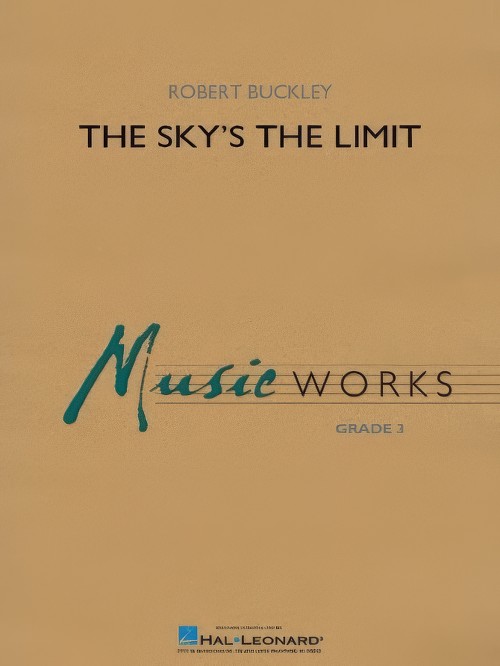 £72.99
£72.99The Sky's the Limit (Concert Band - Score and Parts) - Buckley, Robert
The Sky's the Limit is a celebratory overture that explodes with positive energy and exuberance. From the triumphant opening fanfare to the beautifully elegant euphonium solo (cued in various instruments) to the final exhilarating flourish, this piece is full of powerful melodies, driving percussion and dynamic contrasts. A joyful tour-de-force showcasing all sections of the band! Duration: 4:45
Estimated dispatch 7-14 working days
-
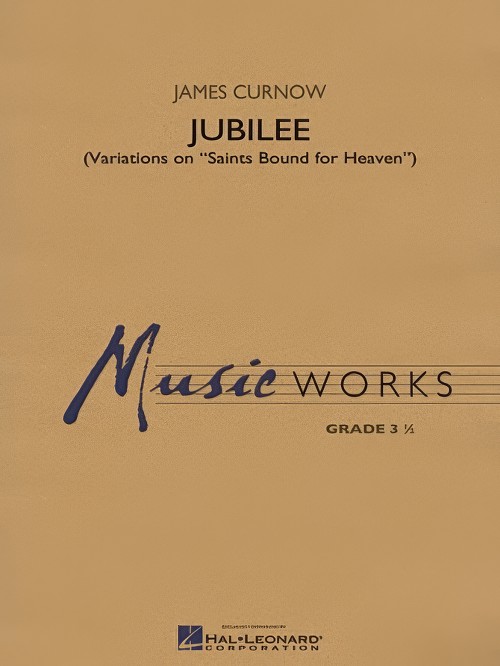 £64.99
£64.99Jubilee (Variations on Saints Bound for Heaven) (Concert Band - Score and Parts) - Curnow, James
Based on the shaped note melody Saints Bound for Heaven, Jubilee by James Curnow captures a feeling of joyful celebration through a series of unique and skilfully adapted variations. The opening strains are actually fragments of the first variation and occur before the main tune is introduced by low brass and woodwinds. The second variation features a euphonium solo and builds to a glorious climax with the full ensemble. The final variation is joyful and filled with energy, using flourishes in the woodwinds and fanfares in the brass for a grand conclusion to this marvellous work.Duration: 5:30
Estimated dispatch 7-14 working days
-
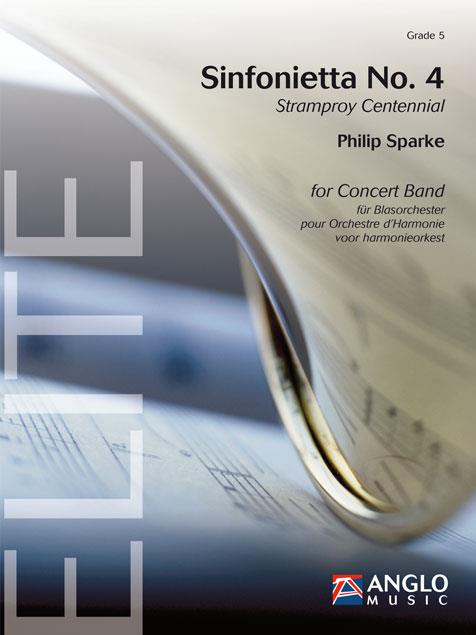 £306.99
£306.99Sinfonietta No.4 (Concert Band - Score and Parts) - Sparke, Philip
Philip Sparke's Sinfonietta No. 4 is comprised of three parts that are played as an uninterrupted whole. The first movement begins with a lyrical fugato passage, framing a brisker and more rhythmical middle section. The second movement is slower and contains a long and expressive euphonium solo. The third movement is a salute to the sponsor of this commission: various percussion instruments conjure up sounds reminiscent of a carpenter's workshop, accompanied by a unison orchestral passage in a scat style.Duration: 18:45
Estimated dispatch 7-14 working days
-
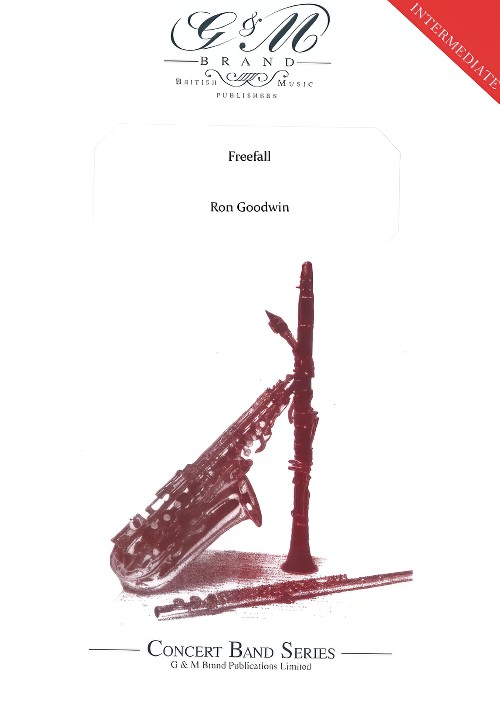 £74.95
£74.95Freefall (Concert Band - Score and Parts) - Goodwin, Ron
Experience the thrill of skydiving with this adventurous Grade 4 piece - from the anticipation of the jump, to the contemplative mood of the aerial view, to the excitement of the 'freefall' itself. The piece features a rare euphonium solo during the middle lyrical section. Jump!
Estimated dispatch 7-14 working days
-
 £14.95
£14.95Freefall (Concert Band - Score Only) - Goodwin, Ron
Experience the thrill of skydiving with this adventurous Grade 4 piece - from the anticipation of the jump, to the contemplative mood of the aerial view, to the excitement of the 'freefall' itself. The piece features a rare euphonium solo during the middle lyrical section. Jump!
Estimated dispatch 7-14 working days
-
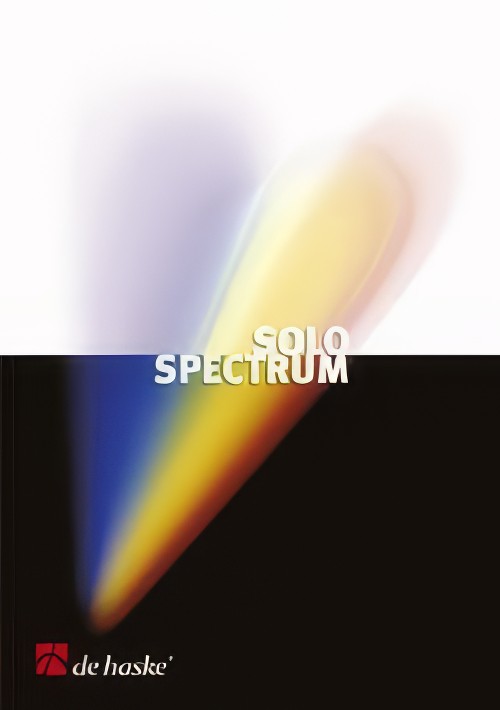 £118.99
£118.99Twilight Serenade (Euphonium or Bassoon Solo with Concert Band - Score and Parts) - Schoonenbeek, Kees
Duration: 8:00
Estimated dispatch 7-14 working days
-
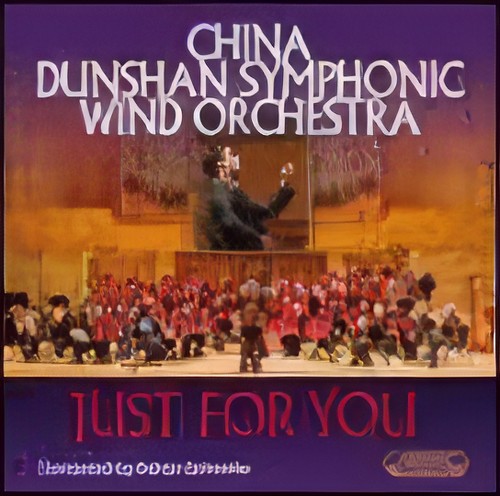 £11.63
£11.63JUST FOR YOU (Wind Band CD)
China Dunshan Symphonic Wind Orchestra, conducted by Adrian Schneider. Includes: Rhapsody in Black (arr. Woodfield); Things (Darrin/van Maart); Abide with Me (Monk/Richards); Amparito Roca (Texidor/Woodfield); Hallelujah (Cohen/Kubler); I Only Have Eyes for You (Warren/van Maart); Down to the River (arr. Fernie); Hawaii Five-0 (Stevens/Burton); Spirit of Africa (Barry/Barry); Let it Shine (arr. Fernie); African Funk (Fernie); Catari, Catari - Euphonium Solo (Cardillo/Fernie); That's Entertainment (arr. Kubler); A Whiter Shade of Pale (arr. van Maart); Just for You (Kubler); Blueberry Hill (Rose/van Maart); My Favourite Things - Trumpet Quartet (Rodgers/Woodfield); Salute to Berne (Obrecht/Woodfield).
Estimated dispatch 7-14 working days
-
 £184.00
£184.00Chasing Light - Harrie Janssen
Chasing Light is a one-part composition in 3 movements. The work opens with a slow introduction, dark in atmosphere, in which the main thematic ingredients are exhibited. This is followed by a fast movement, Chasing Light, in which previously heard thematic material is incorporated. Characteristic of this middle movement is the driving motoric movement that galvanises the aforementioned hunt. An extended Euphonium solo bridges the gap to the final movement. Here ethereal sounds dominate. Harp and Mallets dominate the soundscape, symbolising the light that has finally been achieved.The title Chasing Light can be seen as a metaphor for striving to solve major problems facing the world today, such as the Corona pandemic and the climate problem, among others.Chasing Light was composed on behalf of Stadsfanfaren Izegem, conducted by Hans Demeurisse for the World Music Contest 2022 in Kerkrade.
Estimated dispatch 7-14 working days
-
 £72.99
£72.99The Sky's the Limit
The Sky's the Limit is a celebratory overture that explodes with positive energy and exuberance. From the triumphant opening fanfare to the beautifully elegant euphonium solo (cued in various instruments) to the final exhilarating flourish, this piece is full of powerful melodies, driving percussion and dynamic contrasts. A joyful tour-de-force showcasing all sections of the band! Dur: 4:45
Estimated dispatch 7-14 working days
-
£82.50
Fantasia di Concerto - Boccalari
Composed for Sousa Band eupohonium virtuoso John J. Perfetto, this is a magnificent tour de force for advanced soloists. Also available for clarinet, cornet, or euphonium solo with piano accompaniment.
Estimated dispatch 7-14 working days
